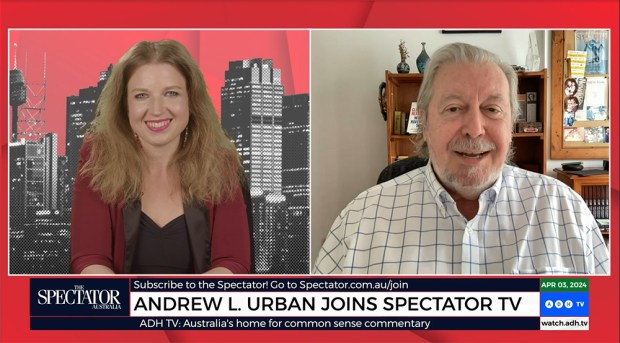Law and language share a critical relationship in preserving freedom of expression. One of the peculiarities of totalitarian societies is that they all ensure rights and freedoms in their constitutions and founding documents. However, those rights are simply words on paper. In a free society like Australia the law has force but the manner in which it is written often provides the breach through which pours the forces antithetical to freedom.
While Americans, liberal and conservative alike, defend the tradition of maximum freedom when it comes to speech in Australia such a consensus in defence of free expression does not exist. There appears to be a greater commitment to defending the British legacy of our legal system that vests the state with broad powers to regulate speech.
Laws criminalising hate speech and incitement to hatred in the Anglosphere countries demonstrate a division between the American and Westminster systems of speech regulation.
The Racial and Religious Hatred Act of 2006 was hastily introduced in the United Kingdom to counter a reported increase in hate crimes. The wording of the law provoked serious concern from Britain’s leading comedians, satirists and writers who feared its ambiguous phrasing would result in prosecutions under the Act.
And there was a genuine cause for concern. The original wording of the Act made it a criminal offence to use ‘threatening, abusive or insulting’ words on the basis of race and religion. Criticism from Rowan Atkinson and Stephen Fry amongst others succeeded, in gaining the removal of ‘abusive’ and ‘insulting’ from the Act. Threatening, though a broad term, is a more identifiable concept and implies the existence of some form of direct danger similar to the US legal concept of a ‘clear and present danger’.
Canada deals with many of the same problems as its Westminster cousins when it comes to the regulation of hate speech. Human Rights Tribunals, operating with similar powers as the Human Right Commission, are persistent venues for litigious action against unpopular opinions. A complaint was brought before the HRC against Maclean’s Magazine for publishing articles by Mark Steyn on the basis that they subjected Canadian Muslims to ‘Islamophobia’, threatening the principle of journalistic freedom.
But Canada’s criminal code has some more deft language when it comes to hate speech. The Public Incitement of Hatred provision in the criminal code defines the offence as that which ‘incites hatred against any identifiable group where such incitement is likely to lead to a breach of the peace’. The phrasing ‘likely to lead to a breach of the peace’ mirrors the American standard where offences brought under the act are judged by whether they can be proven to result in a civil disturbance which endangers public safety. There is even a specific provision making it a crime to advocate or promote genocide. Genocide is given a clear definition as an “intent to destroy in whole or in part any identifiable group”.
The First Amendment to the US Constitution limits the ability of government to restrict the free exercise of speech and public political activity. But the amendment includes language that provides a basis for some restrictions on speech and activities. The constitution states that the government may not restrict ‘the right of the people peaceably to assemble, and to petition the government for a redress of grievances’. The words ‘peaceably’ and ‘petition’ imply that speech or actions that provoke violence or do not conform to non-violent political activity can be restricted in principle.
The US constitutional republic has survived 227 years with the most liberal laws on freedom of speech despite the incredible racial tensions present in American life. Yet Section 18c is defended by figures on the left on the basis that Australian society would collapse into anarchy without the law imposing civil behaviour.
Subsequent US court rulings have upheld the implied restriction on incitement to violence and speech that can be clearly be demonstrated to imperil public safety. Most notably Justice Oliver Wendell Holmes’ famous dictum that an individual does not have the right to ‘shout fire in a crowded theatre’. Meaning there are legal consequences for speech acts that directly result in threats to the safety of the population or that are undertaken to endanger the life of a person or persons.
In Brandenburg v. Ohio the court ruled that “the constitutional guarantees of free speech and free press do not permit a State to forbid or proscribe advocacy of the use of force or of law violation except where such advocacy is directed to inciting or producing imminent lawless action and is likely to incite or produce such action.”
In Hess v. Indiana the Supreme Court reversed the conviction against an anti-war protester “since there was no evidence, or rational inference from the import of the language, that [the speaker’s] words were intended to produce, and likely to produce, imminent disorder, those words could not be punished by the State on the ground that they had a ‘tendency to lead to violence.’”
The wording of these statutes is tighter than other nations requiring that in a public trial the prosecution demonstrate that the incitement to violence was imminent, intended and likely. This is in contrast to the ambiguous United Kingdom’s main hate speech law in which someone accused of inciting hatred (not violence) is liable if he ‘intends thereby to stir up religious hatred’.
The United Kingdom possesses a bill of rights almost identical to its American counterpart that ensures the people of Britain their freedom of expression. But it has largely been buried under the weight of subsequent laws that empower the state to take action against broadly defined modes of speech to the extent that freedom of expression is considered a negative right rather than a positive one.
UK libel laws have become self-satirising for the absurd way in which plaintiffs can use the proceedings of the court to shut down public discussions. Censorship and laws against obscenity and blasphemy also form a major part of British legal heritage especially with regard to state power.
Incitement in the American legal context emphasises the direct link between speech and violent action. The British legal system is far from specific and opts to criminalise the difficult to define concept of hatred. Australia has not adopted the more stringent wording in American restrictions on free speech and opted for laws with ambiguous definitions targeting vague offences.
Illustration: Fox News/YouTube.
Got something to add? Join the discussion and comment below.
Got something to add? Join the discussion and comment below.
Get 10 issues for just $10
Subscribe to The Spectator Australia today for the next 10 magazine issues, plus full online access, for just $10.


























Comments
Don't miss out
Join the conversation with other Spectator Australia readers. Subscribe to leave a comment.
SUBSCRIBEAlready a subscriber? Log in